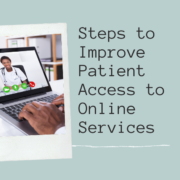Is Inflation Adding to Your Financial Burden?
The stock market was doing well, until it wasn’t. For those of you who are invested in the market, things have been going splendidly for quite a while. Then comes the virus and job closures, people leaving their jobs for better pay. Home prices went through the roof. Many people made money selling their homes at a premium but then couldn’t find a home to replace it with. Rent is exploding. The cost of food is skyrocketing. You can’t find a decently priced used or new car anywhere. Sure, you can trade that used car you currently drive for a great return, but then spend the equity you made plus more into another car.
How do you keep right-side up with all of the changes the world is enduring right now?
Oh Yeah! Now we have a war to contend with and the fallout of it! How about gas prices soaring, way before the usual hikes around spring break and early summer
Can you get a break? If you’re reading this you probably have already been struggling with the high costs of one of the biggest booms… Healthcare. This economic shift is a hard one. The gears are grinding and the brakes are shrieking.
What are steps you can take to help mitigate, the best you can in your situation, the financial stress that comes from all of this uncertainty?
Take a deep breath and I will give you some strategic steps you can take to help alleviate your financial stress and help you make the best of a difficult situation.
First understand you cannot control what happens economically or politically, but you do need to be aware that there are risks that we can anticipate and be ready for.
Here are some basic questions that you can ask yourself to help identify problem areas and then where to address these concerns so you can avoid financial toxicity.
- What is your main area of concern?
- Is it your ability to pay for healthcare?
- Are you concerned that you may not have the insurance coverage you need?
- Do you need help meeting your healthcare expenses?
- Are you concerned about having to leave employment early due to illness?
- Are you unsure of how to keep health insurance if you need to stop working?
- Are you swimming in debt and need outside help managing it?
- Do you need information about SSDI, or SSI
- Are you having difficulty working due to your illness?
- Do you need information about ADA and FMLA?
- What resources do you have that you can use strategically to help you manage your overall expenses?
I know this seems like a lot, but unless you identify your concerns it will be impossible to address your concerns effectively. Take a bit of time to ask these questions, write everything down and prioritize. Pull out your employer benefits booklet and get to know what options you have available to you through your employer.
Get to know your insurance plan and what they are responsible for and what you are responsible for.
Know what treatments you are on and their associated costs. Ask your treatment team if anything is expected to change so you can anticipate and prepare financially for the changes.
If you haven’t done so already, ask your social worker about financial resources that you may be eligible for to help pharmaceutical drug costs as well as financial assistance programs through nonprofits and charitable organizations.
There is help out there for food, utilities, medical bills, rent, insurance premiums, drug costs, travel for medical care and a host of other state and local resources. Now is a good time to take advantage of the resources. If you have a low income, you can even seek help through Legal Aid Society at no cost to you for legal help.
Don’t let financial stress keep you from staying on your medical treatment or from keeping your lights on and food in your refrigerator. Ask for help. Seek out resources that can help you and your family.

Diahanna Vallentine, BCPA, Financial Empowerment Lead
In 2002 Diahanna and her husband received the news that her husband had MGUS, a precursor to Multiple Myeloma. Upon her husband death in 2013, Diahanna immediately decided to make it her mission to help patients and caregivers empower themselves to speak up and to position themselves as partners in their treatment. Diahanna became a Board-Certified Patient Advocate. She is currently the Financial Myeloma Coach for The Myeloma Crowd Foundation.










